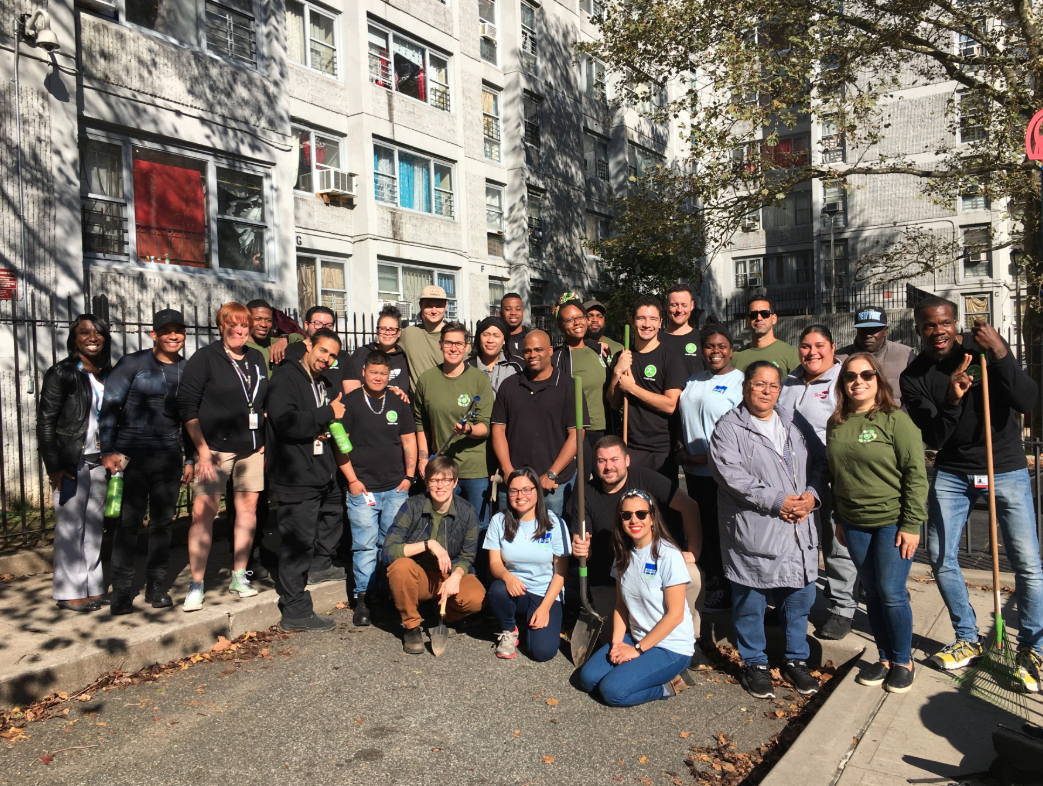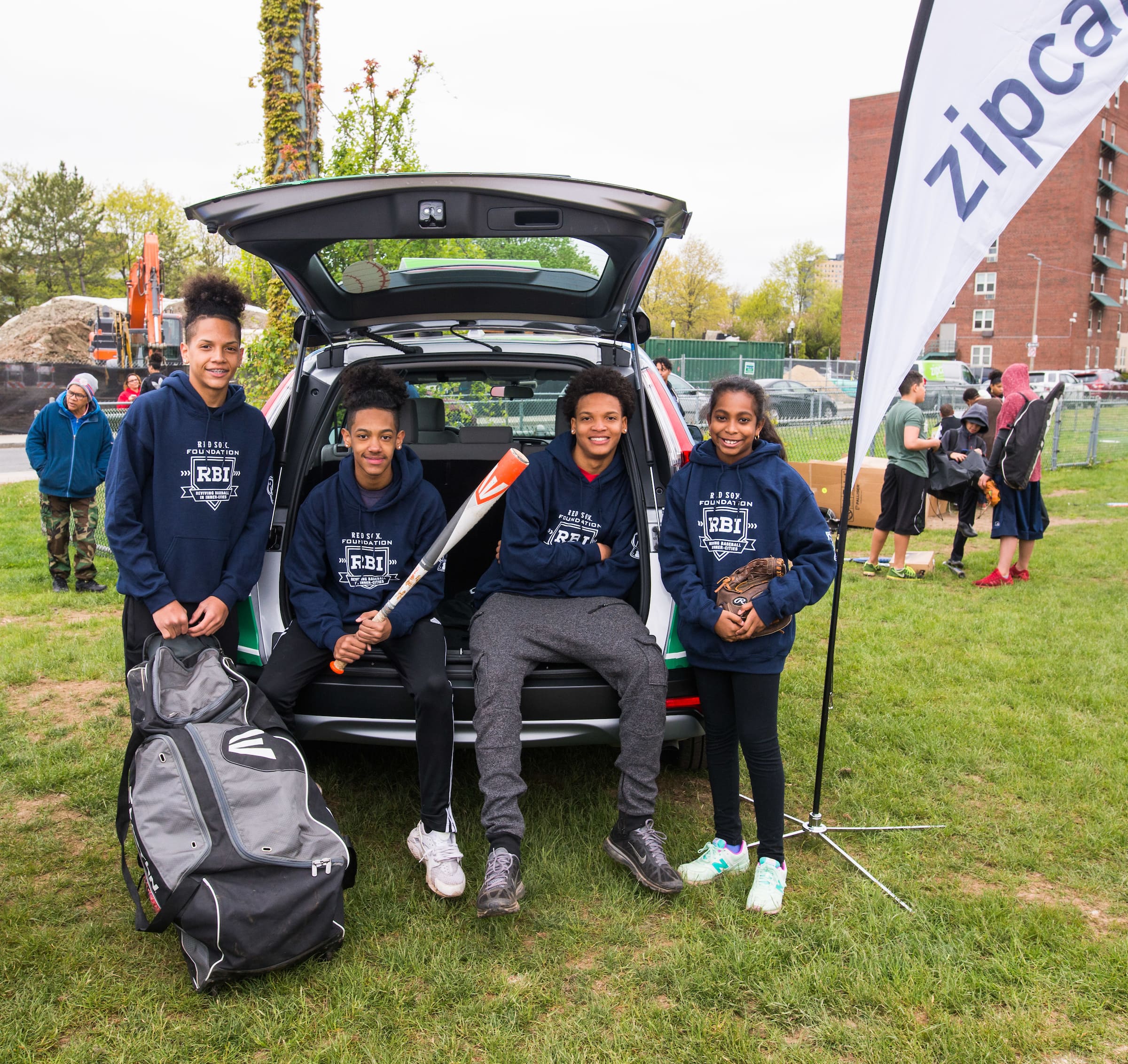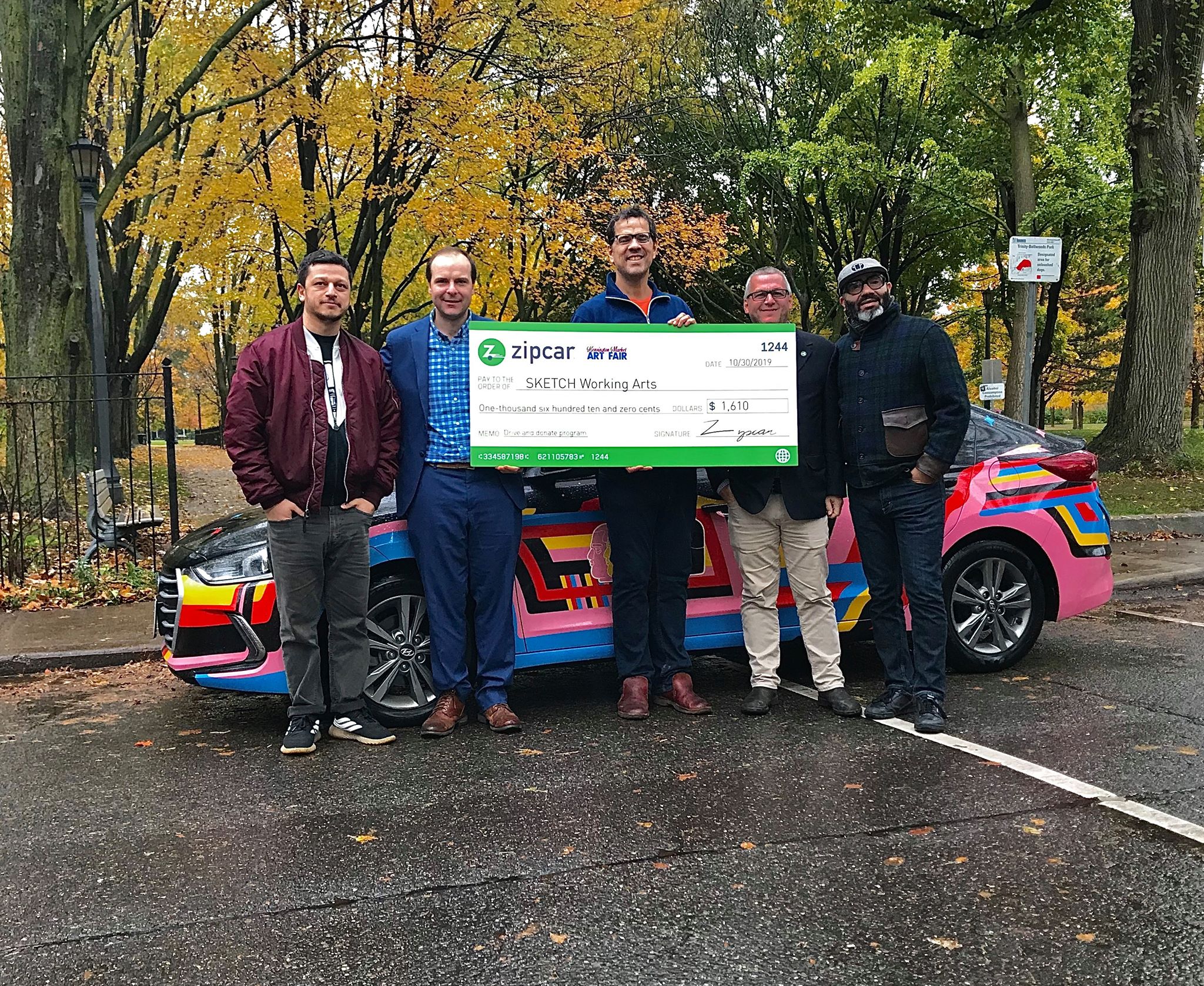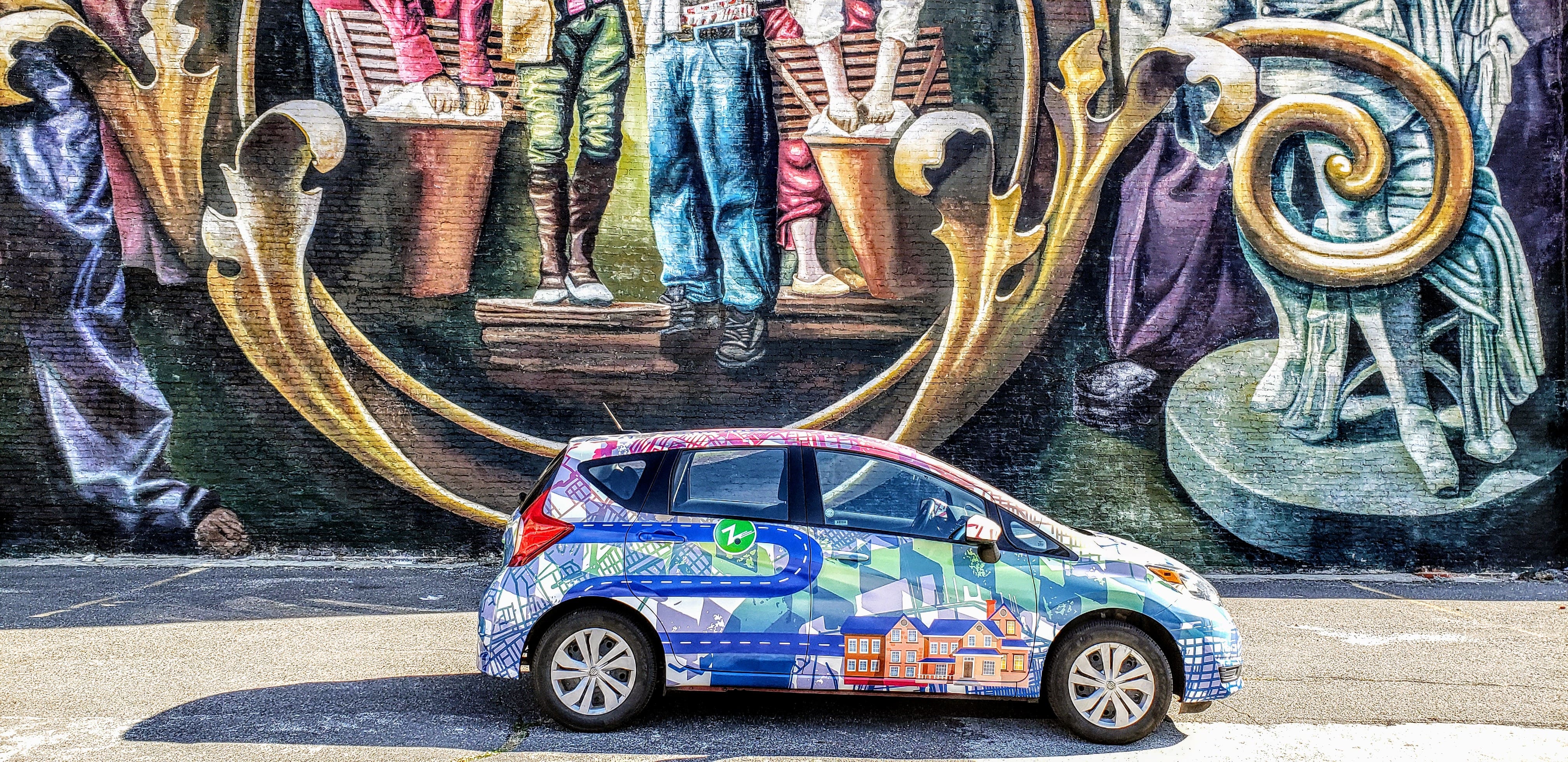If You Want To Go Far, Go Together
From coast-to-coast, non-profit organizations are making an impact in their local communities through positive change. Here at Zipcar, we not only aim to help members expand their possibilities through car-sharing, but aim to make a positive impact on the communities they live in.
This year, we’ve partnered with twenty-nine philanthropic organizations to drive their missions forward. From memberships to driving credit and grant funding, we help provide resources so organizations can spend less time worrying about their overhead, and more time focusing on their mission. Partners such as Family Reach, Oregon Wild, and Mural Arts Philadelphia utilize a variety of Zipcars to get supplies to project sites, reach neighborhoods where public transit does not, and provide comfort and secure transportation to those in need.
A shared car allows the non-profit to reap the benefits of owning a company vehicle without the actual cost and hassle of owning one. For example, Deane Frank of Mural Arts Philadelphia shared, “We don’t have the resources to have private vehicles for staff to use. We find that for the folks that depend on Zipcar, it's sort of the only way that they could get done what they get done.”
So far this year, our partners have increased their reach and impact by taking 1,310 rides for over 13,084 hours across eight cities! Below are stories from some of our partners about how access to Zipcars has made a difference in their communities.
New Yorkers for Parks
With the help of driving hours from Zipcar’s grant program, New Yorkers for Parks has been able to multiply its nine-member staff across the far reaches of the city.
“In the past five months, we have used Zipcar to transport ourselves to all five boroughs, engaging parks and open space advocates,” they said.
New Yorkers for Parks specifically employed Zipcars to make NYC brighter by half a million daffodils through its annual Daffodil Project. Now in its eighteenth year, this program delivered 500,000 daffodil bulbs free of charge to community groups and gardens, schools, local parks’ friends groups, houses of worship, housing developments and citizens who wanted to beautify their little corners of NYC. New Yorkers for Parks used Zipcars to transport tens of thousands of bulbs to designated pickup locations at Grand Army Plaza in Brooklyn, Forest Park in Queens, St. Mary’s Park in the Bronx, Union Square Park in Manhattan, and Brookfield Park on Staten Island. (Can you imagine dragging that many boxes of bulbs on the subway and the Staten Island Ferry?!)
“Zipcar truly makes our distributions possible in not only transporting all of the bulbs and distribution materials on the day of each distribution, but also provides an enormous help at the start and end of each Daffodil Project season to bring all of the tools that we keep at our office during the season back to our storage unit for the winter,” they said.
While thousands of happy, blooming yellow flowers are the end result, the Daffodil Project engages 17,952 adult volunteers and 29,200 youth volunteers across the city. A team of 20 Zipcar employees even got in on the action, helping to plant 700 bulbs at the Davidson Houses in the Bronx.

Boston Red Sox Foundation’s RBI Program
In our hometown, the Red Sox Foundation’s RBI program has used nearly 125 driving hours to bring baseball to children in inner city neighborhoods. RBI, which stands for Reviving Baseball in Inner-Cities, aims to reintroduce boys and girls ages 9-18 with America’s pastime and, along the way, “promote the importance of good decision-making through development of good nutrition, leadership, respect for others, nonviolent conflict resolution, and an overall commitment to one’s potential and to the community,” according to the foundation’s website.
This year, the foundation helped 2,655 kids across New England get better acquainted with the sport through clinics – a 72% increase in participants over last year’s series of clinics. What was once confined to Boston has spread across the region, thanks to Zipcars, which transported equipment to 10 clinics in four states.
“We’ve not only engaged the kids and their families, but their communities too,” the Red Sox Foundation said.

Sketch
In Toronto, Sketch uses the arts to serve young people ages 16-29 who are homeless or impoverished. Through creating, supporting and appreciating art, Sketch aims to help its participants build leadership and self-sufficiency and cultivate social and environmental change in the community.
Last year, Sketch was able to welcome 1,300 artist participants, connect 400 of them with meaningful mentors, and serve 5,800 home-cooked meals.
Sketch believes that “if young people engage and develop in the arts, they increase their resilience, capacity and agency, to live well and lead, creating more inclusive and vibrant communities.” To immerse these young adults in the arts, Sketch offers 7,000 square feet of space in a multi-purpose studio, a music studio and a pottery studio. These studios are home to weekly workshops and seasonal projects for young adults in the program and can be rented out to community groups for art classes and events.
Through the imagination of Sketch artists, one lucky Zipcar is transformed into the Kensington Market Art Fair Art Car each year. Check out the 2019 Art Car and the 2018 Art Car.

Mural Arts
Mural Arts Philadelphia is the nation’s largest public art program, uniting artists and communities through a collaborative process, rooted in the traditions of mural-making, to create art that transforms public spaces and individual lives. Yearly, Mural Arts engages communities in 75–100 public art projects and maintains its growing collection through a restoration initiative.
While the organization impacts communities all over Philadelphia, the Mural Arts home office is a historic building, The Thomas Eakins House, with limited parking.
“It’s a great space in many ways, however parking in the neighborhood is tough,” Deana Frank, Director of Development for Mural Arts said. “Using Zipcar is a huge help.” With designated parking spots nearby, employees don’t need to spend time or money on parking each day. They can also opt to take a car from anywhere in the city, perhaps closer to home, and choose a larger vehicle when they need more room for supplies. “We do 75-100 projects a year in every neighborhood throughout the city and our project managers have to get to multiple locations in a day. They're bringing equipment, bringing materials, and it would be a lot less simple if we had to be using public transportation.”
Since the establishment of Mural Arts over 30 years ago, they have grown from a small team to a large organization that educates, supports, and connects thousands of Philadelphians. “The organization has changed and it's in part because services like Zipcar allow us to keep growing and to keep doing that work efficiently,” said Frank.
Zipcar not only supports Mural Arts through grants, but the organizations now collaborate yearly through the Artrepreneur program to create a student designed Art Car that is available to be driven by Zipcar members. “The program is designed specifically to intersect the world of business and the world of art and to help young people see pathways to creating services and products that unite those two worlds,” explained Frank. The latest Art Car can be seen (and booked) on the streets of Philly through December 16th!

San Francisco Court Appointed Special Advocates
Court Appointed Special Advocates is a national organization that pairs trained adult volunteers with children navigating the foster care system. These volunteers provide kids with a stable adult presence to advocate for their housing, health and education needs and support them through the process.
In San Francisco, which routinely ranks among the country’s most expensive cities to live in, the CASA chapter faces a uniquely daunting challenge. Nearly two-thirds of children put into the foster care system in San Francisco are placed in homes far outside the city. Children end up in foster homes hundreds of miles away in cities like Stockton, Sacramento and Los Angeles. A visit from a CASA volunteer can help these kids feel connected to their hometown; however, many San Franciscans don’t own cars, so CASA volunteers are able to use Zipcars free of charge through the Zipcar grant program.
“With Zipcar’s help, CASAs were able to provide a connection for kids who often feel
alone and isolated, drive their youth to a doctor appointment or a visit to siblings, or take them to a fun activity like a movie or a soccer game,” SFCASA said.
Chicago Cares
Chicago Cares is the Windy City’s Swiss army knife of philanthropy – through engaging an army of 20,000 volunteers each year, this single organization coordinates 200 projects every month across a variety of needs in the city’s many neighborhoods.
“Our partnership with Zipcar plays a critical role in getting our staff around the city of Chicago and makes their jobs easier, so they can focus on our mission and the impact of our work,” Chicago Cares said. “Zipcar is an essential resource that provides us with great accessibility to transportation in all corners of the city.”
For the first 10 months of the year, Chicago Cares has booked nearly 70 trips to visit sites, haul supplies and attend meetings. Some of Chicago Cares’ volunteer events include game nights with senior citizens at city housing developments, free boutiques that give homeless women access to the clothing and accessories they need for job interviews and cooking classes to introduce low-income kids to healthy foods.
“Zipcar allows us to have efficient, opportune transportation at our fingertips – and we don’t need to book too far out in advance either, which is helpful we don’t always have advance notice,” Chicago Cares volunteer engagement manager Sam said.
Oregon Wild
Oregon Wild, a non-profit based in Portland, works to protect nearly 2 million acres of Oregon’s wilderness, rivers and forests through legislation. To support its mission, Oregon Wild’s staff leads guided hikes for Oregonians to experience their state’s wild lands that have been recently protected or are endangered. They used Zipcars to reach the sometimes-remote destinations where the hikes take place.
“These trips have focused on outdoor education, plant identification, identifying threats to these areas, education about how our forests are helping fight climate change, providing access to the outdoors and mobilizing Oregonians to help protect our wild places, clean water and critical wildlife habitat,” Oregon Wild said.
Staff have also used Zipcars to attend community outreach meetings, document forest management operations and offer a tour that showcased forest restoration and conservation. In particular, the Oregon Wild team enlisted the help of a cargo van from Zipcar for the day of their annual Call of the Wild, a camping-themed benefit that encourages attendees to wear flannel and denim instead of tuxes and gowns.
“It was absolutely invaluable in helping us set up and run critical errands for the event,” Oregon Wild said.
Family Reach
With offices in Boston and New Jersey, Family Reach has a network that spreads far beyond the I-95 corridor. This non-profit provides financial support to families battling cancer. In addition to enduring treatments, patients and their families often need to pay for travel, housing and transportation while on their journey. Many encounter what Family Reach calls “cancer-related financial toxicity,” which makes cancer patients 2.65 times more likely to declare bankruptcy.
Family Reach offers financial education, planning and assistance to cancer patients and their families across the country.
“Many families travel one to two hours to get treatment, while other travel out of state to major medical centers,” Family Reach said. “Gas, vehicle maintenance, and rental car expenses all contribute to the total cost of cancer treatment. Zipcar credits play a significant role in alleviating the financial burden of cancer, providing very tangible support which helps families prioritize life-saving care.”
So far this year, Family Reach has supported 18 cancer-fighting families in Massachusetts, New York, Tennessee and Washington through its Zipcar grant. Using Zipcars allowed these families to obtain specialized treatment not available at the patients’ local hospitals and access routine chemotherapy.
Through Family Reach, the Driban family used their complimentary Zipcar to travel to Boston for a second opinion.
“With the help and ease of the hotel and car rental, so much of our stress was taken away,” they wrote to Family Reach. “We were able to get everywhere we needed to quickly and, because of your help, we were able to enjoy the city of Boston too.”
Thank you for the amazing work you do!
-
New Yorkers for Parks
-
New York League of Conversation Voters Education Fund
-
Brooklyn Greenway Initiative
-
The Family Center
-
Bike New York
-
The LGBTQ Center NYC
-
Active Transportation
-
Chicago Debate
-
Chicago Cares
-
San Francisco Court Appointed Special Advocates
-
Hands On Bay Area
-
Oregon Wild
-
SOLVE Oregon
-
Street Soccer USA
-
Upward Roots
-
Walt Disney Family Museum
-
Operation Access
-
Red Sox Foundation
-
Family Reach
-
Boston Cyclist Union
-
Mass Mentors
-
PACT
-
Sketch
-
412 Food Rescue
-
Mural Arts
-
Project Bread
-
Boston Pride
-
Family Aid
-
Volo City Kids




